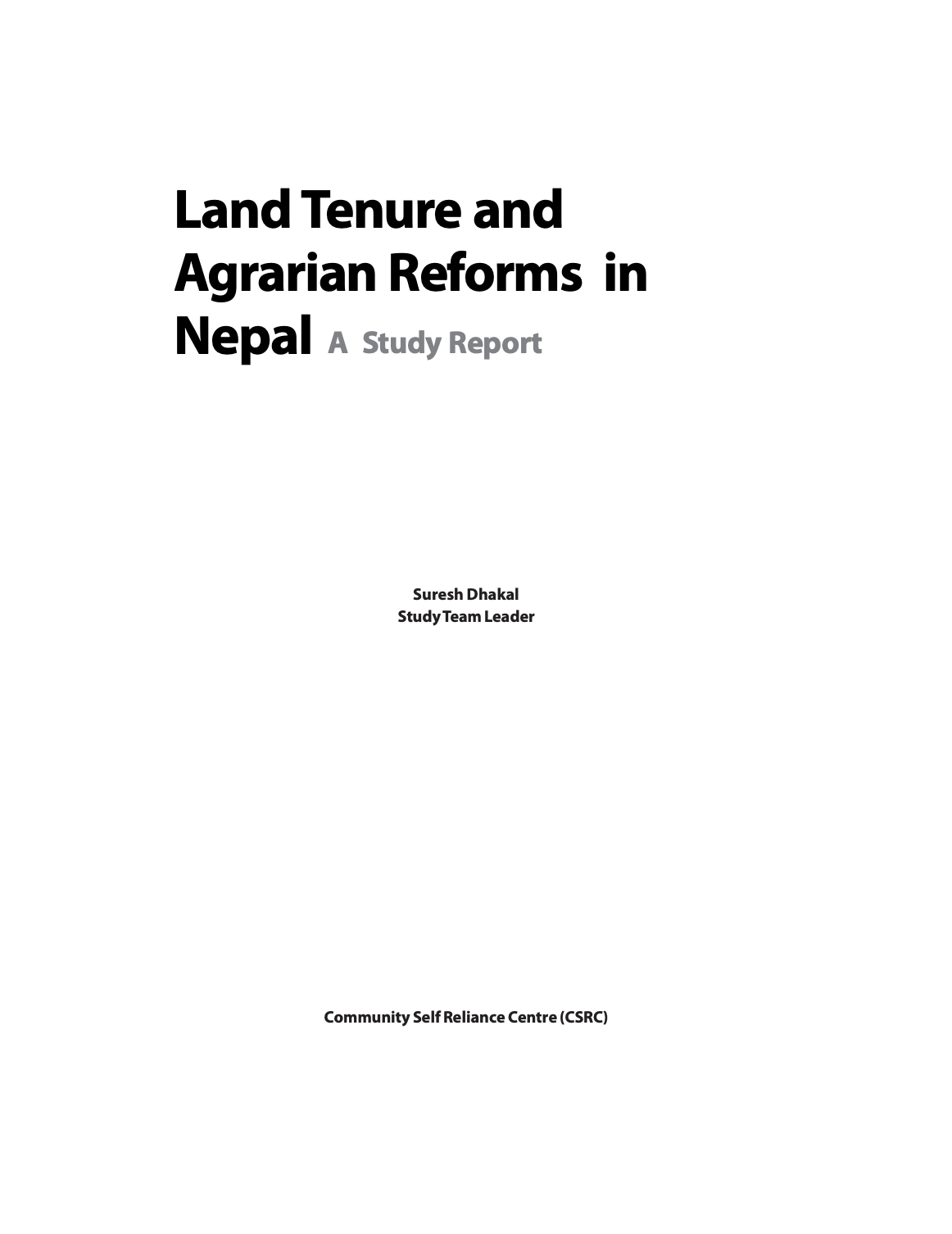Upland Land Tenure Security in Myanmar - an Overview (Burmese မြန်မာဘာသာ )
This report provides an overview of issues related to upland smallholder land tenure. The immediate
objective of the report is to promote a shared understanding of land tenure issues by national-level
stakeholders, with a longer term objective of improving the land tenure, livelihood and food security of
upland farm families. The report is intended for government and non-government agencies, policy
makers and those impacted by policy. The report covers four main areas: status of and trends in upland



